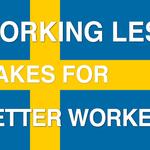
The crux of the matter is that a pool of unemployed people anxious for jobs is necessary to support any growth in the number of jobs created. The latest report on unemployment , calculated by the Department of Labor, shows the figure at 4.3 percent, down a tenth of a point since May, when the rate was 4.4 percent.
In June, employers offered 209,000 more jobs that contributed to the small dip in the rate. In July, the greatest surge in job availability was in the restaurant/bar sector. Some 53,100 jobs were added to the tally, probably indicative of the rising wages being offered to restaurant and bar workers. Average hourly pay increased by 4.7 percent over June of the previous year.
The United States is benefiting from steady economic growth around the world. Europe and Japan have both posted gains and China’s somewhat teeter economy has showed signs of stabilizing.
The new figures suggest that Americans who had become discouraged with the job market and quit looking are now coming back to the search. Many who went back to school or decided to just stay home and care for family are being lured back by the abundance of jobs.
The rate of hiring has stayed about steady over this year compared with last, but some 184,000 new jobs have become available each month through July. In 2016, that figure was 187,000, a sign that the post-Great Recession economy was righting itself. This July, 81.8 percent of people aged 25 through 54 had jobs or were looking for one, the highest number since December 2010. Economists focus on this age range because it includes the Baby Boomers who retiring and the younger generation that is likely still to be pursuing higher education. The current figure, however, still lags behind the 84.6 percent that was registered in 1999.
Economists expect that the 81.8 percent could jump by another 0.7 percentage points if current trends continue. That would add another 1.8 million jobs.





